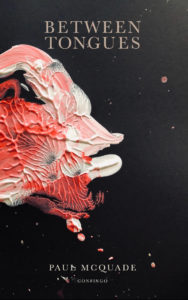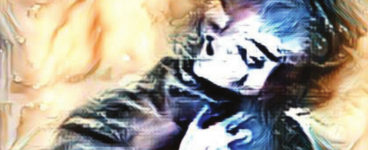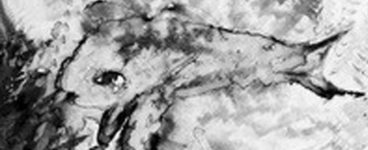‘Up the mountain. Through birch bones. Through leaf-whispers. Away from camp, where the children should be rising, bleary, pre-dawn, putting on orange T-shirts.’
Where does one language end and another begin? What happens to those who find themselves not simply between languages but in states of transformation and translation? Paul McQuade’s debut short story collection navigates this space between tongues. You can read his story The Call below.
Extract taken from Between Tongues
By Paul McQuade
Published by Confingo Publishing
The Call
Up the mountain. Through birch bones. Through leaf-whispers. Away from camp, where the children should be rising, bleary, pre-dawn, putting on orange T-shirts. ‘Camp Wolfcreek’ in stylised timber font above a black wolfprint. Adam Green swipes tree branches as he ascends. Leaves, full and summer-green, settle in his hair. He shakes his head and they scatter.
He should be there. Should be making sure they brush their teeth, comb their hair, get to breakfast on time. He should be shouting names: Harley, Katy, Gwenn, Chris, Crystal. Rise and shine. And they would be looking at him the whole time, oddly wise, like little sages, perceiving in his accent a certain oddness, an out-of-placeness that is more than his Galway whiteness. He thinks to himself that, yes, that is what he should be doing, that is what he is, after all, being paid to do. But he does not turn back. There is nothing to go back for.
You can’t run away from this, son.
The trees diminish as he rises; the air becomes thinner. He climbs steps on the winding path, legs stretching up ridges formed by root-snarls. The ground dips suddenly, the forest spilling out on to a tarn: all round the lake steep peaks rise and, in the water’s surface, quiver, snow clinging still to the peaks despite the summer sun, now beginning its ascent on the far shore. Where the sun touches it, the water is brilliant aquamarine. The wind brings waves in skeins of arrowheads toward him.
You can’t run away from this, son.
His mother’s voice speaks from his phone. The plastic is warm against his ear, the screen clouded with skin flakes. He hits the repeat button and sits on the lake shore, on a bed of pebbles that glitter cold in the morning light.
You can’t run away from this, son.
It is the ‘son’; it digs under his skin. As if he has forgotten, as if his flight across the ocean, his six-week seclusion, amounts to a total abandonment of filial duty.
Doesn’t it? Hadn’t that, after all, been the point?
You can’t run away from this, son.
Adam stands. The pebbles cling to him in a pattern reminiscent of chain mail. He takes the phone in his hand, hits the playback button. His mother begins to speak. He launches the phone in one clear arc.
You can’t run—
The phone drops into aquamarine. The arrows of the waves shatter. Silence, invisibly expansive, stills the small noises of the woods, mountains, lake: the leaf-shake, the water-hush, the fox-paw scratch. The to and fro of voles and moles and larks. For a moment, for one brief shiver, everything – everything ceases.
Something emerges from the lake. A blade, a hilt, a sword in a milk-white hand, undoubtedly female. The hand gleams as if covered in gold scales.
All he has to do is take it. All he has to do is put his hand out. The sword will be there, he knows it. It will move invisibly from the lake to his hand, so fast the water of the lake will be unruffled. And something will have been decided.
He can see it, see himself – clearly, as if he has stepped outside himself briefly – on the lakeshore with the sword held high, morning light fierce along its edge. He seems strong, capable. He will go forth in pursuit of – here the vision is indistinct, an outline of an image, the ghost of a girl, the suggestion of a crown. When he has the sword he will know what to do, know what he will get in return for carrying it. There is a bargain being struck here. He is being offered strength and promise and being more than mortal.
— away from this, son.
*
It begins with a ring. A silver band in a radish patch, sapphire the size of a thumbnail, glowing. The tilled earth in the grave-light is that of another world, one far removed from Galway, the farm, the parochial life eight-year-old Adam Green is living. He stares at the ring, radishes in hand. Odd sigils are carved along the band.
‘What ye got there, now?’ his father asks, wiping his hands with a rag.
Adam doesn’t touch the ring. His father comes and looks at it. He moves to touch it and arcs of electric blue crackle along his hand. The air smells of burning hair. Adam can taste the smoke on his tongue as he helps his father into the house.
That night, they – his father, his mother, and him – go to look for the ring in the allotment behind the house. They dig in the dirt, but nothing comes forward, save a few gnarled radishes, an earthworm, and several small stones that look like teeth.
They never speak of it again, but Adam knows: that only he could have touched that ring. It had been meant for him. He stops helping his father pull the vegetables out of the garden. He thinks his father might take issue with it, but he accepts it, as if he had expected it all along. As if he knows why Adam is afraid to put his hands in the dirt.
*
Adam’s mum picks him up from primary school. She parks the car in front of the church across the road and waits. Adam crosses with the lollipop man, every day, without fail, like a good boy should, though at ten years old he is pretty sure he can cross the road by himself. Nevertheless, he waits with the kind old man in the yellow jacket until he says it is time to cross as he steps into the road with his staff held high and brings the cars to a halt.
There is a younger boy with him today. He walks behind Adam as he crosses the road, the lollipop man smiling at them both as they pass. The lollipop man walks back to the other side. The boy behind Adam stops to tie his shoelaces in the middle of the road.
And Adam feels it. All he has to do is grab the lad, draw him across the tarmac to the kerbside, as a car shoots past with a sound like wings buffeting. It will be a different sort of valour. It will not involve rings or lightning. But a bargain, nonetheless. And from there on out, he will never accomplish anything more.
Adam stands and stares as the boy ties his shoelaces. First the left lace of his left shoe, over the right lace, round, under, loop. Adam sees something moving out of the corner of his eye. He remains motionless, devoted to this moment of indecision. He refuses. He refuses to step forth. Metal screams in the air.
*
When Adam is sixteen, he is desperately in love with Clara McDougal. She is everything. She is dark hair, green eyes, impossible legs. She smells of apples and pencil shavings and every time he passes her in school odd muscles in his stomach levitate. He thinks about her in English, in Irish, in mathematics, conjuring her form in a series of adjectives and shapes: rhomboid, meallacach, foirfe, heart-faced (two semi-circles, one triangle [isosceles]), perfection. The teacher drones on, buzzing, a bee at the open window by which she sits, taking notes. He gets so lost in his head, in the idea of her, that he doesn’t see her vanish.
One minute she is there, the next she is gone. On her desk is a folded-up square of paper sealed with blue wax. The window is open. He hasn’t imagined that part. She is gone through the window and no one has noticed except him.
And he knows: if he reads the letter, it will be decided. He will go forth. There will be a fortress, in the woods, a house (possibly edible), a woman, a man, a black robe, a curse, jealousy. These parts are undecided. They are in motion. It all depends on his stepping out, into this other world beyond the window. He must leave school behind, his family behind – he must relinquish all claim to banality. This is the trade. The bargain. The pact.
*
His father is diagnosed when Adam is twenty-one. His mother tells him nothing for weeks, while his father becomes secretive, forever popping out and coming back ashen. When they can no longer hide it they tell Adam his father is dying.
But you can save him, his mother says.
His father cannot look at him. He knows, that this is so much to ask, that he is putting everything on his son. And he must. But he cannot. He looks at the wall while his wife speaks.
The operation is safe, she says. Your life would be the same afterwards, it would be OK, it would all be OK. It’s just a little piece of you. Just a little sacrifice.
You could be a hero, she says. Please. Be a hero.
*
Adam Green takes his father’s credit card and goes to Dublin. At an internet cafe on Grafton Street, near the statue of Molly Malone, he finds a summer job in Wyoming. He gets on a plane and leaves behind: a ring, a letter, a farm outside Galway.
And his mother leaves a message on the voicemail on his phone.
You can’t run away from this, son.
*
There is something about the children at the camp, how life is laid out before them, undecided. They are still growing into themselves, still tumble awkwardly over their own feet as they run pell-mell alongside the wood cabins. They laugh freer, unabashedly joyous. It seems easier to breathe when they are near. Adam begins to think he has made the right decision, though at night he presses his phone to his ear and listens to his mother speak. He has no signal on the phone, no credit left, but it holds the last fragment of something he cannot fully give up. He is almost positive he has made the right decision, but when his mother speaks he is not so sure.
Weeks pass. The camp will only last for six, with children in variations, out of their parents’ hair for a brief time across June and August. Adam teaches them how to light a campfire, how to sing around it (he tries to teach them ‘Óró sé do bheatha ‘bhaile’ but they all want to sing something about a man called John Jacob Jingleheimer Schmidt).
They push him. They rebel, rage, scream, cry, run, return. They push and test and tear at limits. And his response to them is measured, calm, controlled. When he does this he feels more human than some figure with a sword, stuck in a suit of armour, off to take a girl in his arms as if she has no legs. He feels himself becoming himself. A man refusing both gifts and bravery, refusing to be bound. A man. No more, no less.
*
Adam wakes in the night. He feels the weight of another person in the room, but when he turns the light on he is alone. He hears noise through the door that connects to the children’s bunks, but it seems far away, muffled by whatever fog still lies in his mind. He tries to shake his head clear, but still it feels like a ball of cotton wool: bunched up, indistinct. He turns over to try and get back to sleep, but the sheets are soaked; his legs slip over each other, greased with sweat. It is too hot. That sound from the other room. Like a faint calliope. It is too hot. And what is that smell? A raw, animal scent on the bed sheets, and something charred. The dark burn of charcoal. But the fire had been put out before bed. Hadn’t it?
Adam sits bolt upright and looks at the door. Smoke coils beneath it, conspires along the ceiling. The children are burning. Too tired, too beaten by the heat to scream properly. The whimper on the other side of the door. Waiting.
He feels it: this moment of decision, to step forward, to be what he is meant to be. He must give up normality, must put the needs of the world before his own. He has been feeling like a man all this time but now that it comes down to it, to this moment of gritted teeth and jaw held high, he is not sure he can bring himself to do it.
And if he does? The children will worship him, will behave, will do whatever he wants. Their parents will embrace him, will whisper ‘thank you’s on his shoulder. They will call him a hero. And he will have to give it up. Give up everything to become it. No more human failings, human vices, human passions – a hero. This and nothing more. All he has to do is go through the door; all he has to do is answer the call.
*
The hand holds the sword in the water. Whose hand is it? What body moves behind these gestures, these deaths, these calamities? Who is calling?
Adam is distrustful. He has seen too much sacrifice, too many heroes made and made to vanish: Conchobar mac Nessa; Fionn mac Cumhaill; Gráinne Mhaol; the Fianna; Brian Boru; Patrick Pearse; Michael Collins; Éamon de Valera. Bobby Sands, Patsy O’Hara, Michael Devine. And what is their legacy? What is left of them but the name, the head lopped off, the walls of their prison cells still stained with excreta? Is this the price of immortality?
He will not pay for something he has never wanted. He did not want it in a radish patch, did not want it with vanishing Clara, did not want it when his father would not ask. He did not want it as the cabin collapsed. Did not want it in the searing air or the needling heat. And he does not want it now, by this lake, on this mountain. He wants life, not legend.
But what is left for him now? He knows his mother will never forgive him, and he doesn’t even know if his father is still alive. The camp. The children. Those he should have protected. He has gained nothing for it. For all the things he has lost trying not to lose himself. But this sword, like a compass needle, keeps swinging back to this same decision, time and time again, inevitable as north, awaiting the time when he will finally say yes. And he knows, one day, he will have to answer the call. That the game is rigged from the start.
That the dealer always wins. The lake water rises to meet him. He steps into it. The hand trembles slightly, but never loses grip of the sword. It has waited so long for this. A few seconds more. He walks toward it, legs unsettling silt. The bottom of the lake remains level. It is part of the hand’s magic, he is sure. It is bending the world to it. To this trade, this becoming of the figure of a man.
The sword is there. In that hand, which is, up close, almost transparent. All he has to do is reach out and take it. He will be great. He will be forgiven his indiscretions, his vehicular negligence, his wilful manslaughter. Because he will no longer be Adam Green, once farmer, prodigal son, lustful teenager. He will be something more than a man, and something less. He reaches out. The blade glitters, keen. Somewhere in the wood, a lone bird raises its call. There is no one there to answer.
Between Tongues by Paul McQuade is published by Confingo Publishing, priced £9.99.
















